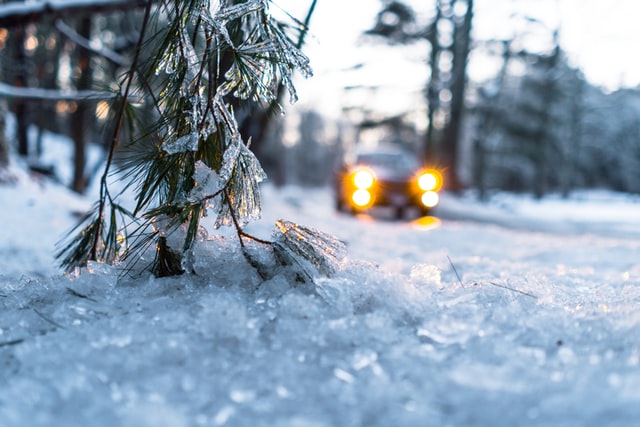When winter weather is on its way, taking time to prepare your vehicle is an important step that can save you thousands of dollars in the season ahead. Dropping temperatures, snow, freezing rain, and dangerous driving conditions can bring unnecessary risks if the right precautions aren't taken. Here are some important steps to prepare your car before the winter season arrives.
Batteries are often under additional strain in the winter. With lower temperatures comes thicker oil consistency, which means that your vehicle's engine has to work harder to get you from point A to point B. Many dealerships and repair centers offer free battery testing, letting you know if it's time for a new battery ahead of the winter season. It's also recommended that experts clean any corrosion off of your battery and that all parts are tested to ensure that your battery is in its best shape.

Cold temperatures are known to cause tire pressure to drop, giving you less control behind the wheel which can lead to risk situations as road conditions worsen. Checking your tire pressure on a weekly basis and adding air as necessary provides peace of mind that your vehicle is stable and ready for every trip, whether it's across the country or to the store for milk and bread ahead of the storm.
Hitting a patch of black ice is bad, but it's even worse when your brake pads aren't up to par to help you reduce speed. Head to a mechanic before the season starts and have them inspect your brake pads and top off your brake fluid. Doing so ensures that you're ready for whatever the season has in store.
Regular tire rotations ensure that your tire tread is wearing evenly over the years, but tire tread is even more important in the winter months. From icy roads to deep snow drifts, having proper traction is a key to making it safely to your destination. If any tires need replacing, go ahead and get that taken care of before the winter weather strikes.

We've all been there - you're sitting in your car with the defroster on high and your windshield wipers going at full speed on a 15-degree January morning. While your windshield may eventually clear up, scraping ice can cause massive damage to your windshield wiper blades. Replace your windshield wiper blades at the start of the season, giving you plenty of time before they begin to deteriorate. Check them periodically throughout the winter and replace them as necessary; it's important to always keep your eyes on the road!
If you're one of the "I know my vehicle" drivers when it comes to your gas tank, it's always better to be safe than sorry! Experts recommend keeping your gas tank at least half full during the winter months, but a full tank is an even safer bet when winter weather is on the way. However, a full tank goes way further than peace of mind! When a gas tank has empty space, condensation can build up and lead to freezing that blocks fuel lines and can bring massive repair costs. Topping off your tank is always the best choice during the wintertime!
Keeping these tips in mind with winter on its way will help make sure that you’re starting the season on the right foot when it comes to being prepared for the cold temperatures and inclement weather ahead! While these tips are helpful, they aren't foolproof. Having a comprehensive auto insurance policy that meets your needs year-round before you hit the road is a must-have. Contact our team at Lowry today to learn more about our personal insurance solutions, evaluate your existing policy, and find the best option for your needs and your budget.